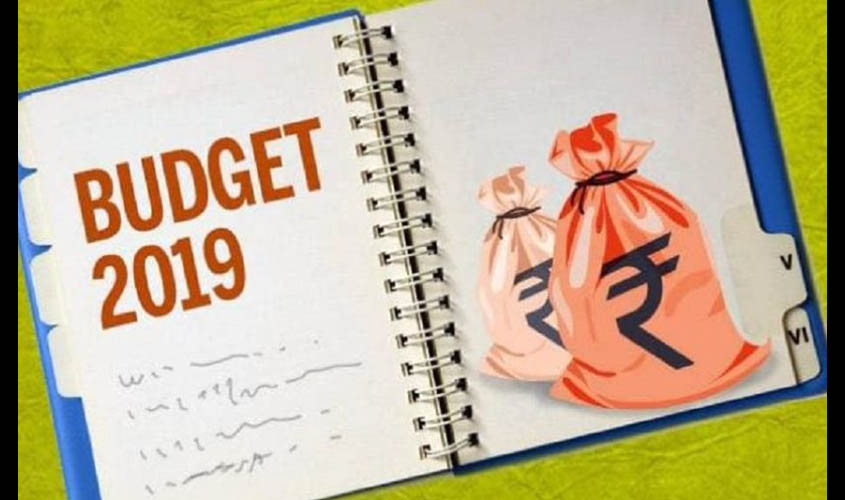Nirmala Sitharaman could have been bolder in pushing the reform agenda.
Finance Minister Nirmala Sitharaman got the symbolism wrong. Going back to bahi-khaata in the electronic age—when even aadhtiyas have discarded the cumbersome bahis—did seem rather incongruous. A briefcase is always handy to carry papers and small files, especially the FM’s Budget speech. She ought to have stuck to it—everything our colonial rulers did need not be discarded. Just when the focus is on digitising all facets of governmental activity, Finance Minister carrying a bahi on the most important day in her annual calendar does seem rather odd.
Given that this was the first budget of a government which had just won another five years in power, she could have been bolder in pushing the reform agenda, lowering corporate taxes across the board, doing away with irksome exemptions which deface the entire tax system, and provided fillip to mid-level businesses and industries to grow. Farm sector reforms did not find a mention, but labour reforms found a weak one, with the entire cache of laws being reduced to four codes (whatever that might mean since we do not have the details). Sitharaman leaned in favour of incrementalism, the trademark of the Modi Sarkar.
First, the ubiquitous common man. Given sops in the interim pre-election budget, he is now called upon to pay more for petrol and diesel whose cascading effect on price-line might however be modest, given the prevailing low inflation. But aam aadmi stands to gain from higher interest subsidy on home loans availed up to March 2020. A 2.5% hike in gold import duty might hurt if he still buys jewelry for his children’s weddings. Otherwise, it is a salutary step to wean Indians away from a wasteful custom, though smugglers, too, will be happy unless we can clamp down on their nefarious operations.
Tax-payers will welcome the interchange of Aadhar and PAN card for filing tax returns and will approve the elimination of a human interface in case of scrutiny of returns. Hike in import duties on a few select items is unlikely to hurt the aam aadmi. Holding fisc in check at 3.3% signals a tight control on expenditure—or relying on extra-budgetary sources such as higher dividends from the RBI, cheap borrowing from foreign markets on issuance of sovereign bonds, and of course, Rs 1.05 lakh crores from selling dud public sector units. This will help her boost infrastructure spend. Nitin Gadkari’s allocation for roads and highways may have actually reduced but is likely to be more than compensated by the proposed cess of Rs 1 per litre on petrol and diesel for the vital sector.
At a time when the global economy is slowing, when red signals emanate from the US-China trade war, Brexit, war-like noises in the Middle East, etc., the plummeting domestic growth required an export push. A special effort ought to have been made to attract foreign investors keen to relocate from China due to higher costs and rising uncertainty. A package of sops with an eye on major global behemoths has been offered but is unlikely to persuade them to set up shop here in the absence of a holistic environment. She ought to have been still more ambitious, especially when presence of global brands has a huge spin-off effect on the ancillary sectors.
Also, corporate sector is unlikely to be pleased with the reduction of promoter shareholding from 35% to 25%, which will oblige marquee names to offload a huge chunk of shares in the market. This at a time when the promoters of a major private sector bank are still engaged in a bitter legal battle to retain a higher than 35% holding. Mercifully, the return of wealth and inheritance taxes was a false scare. But corporate biggies have been targeted by the increase in surcharge up to 7% for those returning income of Rs 5 crores or above.
Without the revival of the corporate sector the goal of 8% growth, as envisaged in the Economic Survey, will remain a pipe dream. It is good that 25% corporate tax has been extended to companies with a turnover of Rs 400 crores as against the earlier Rs 250 crores. This leaves out only 0.7% companies to pay the old 30% tax. The latter will more than cover the loss occurring from extending the benefit of lower taxes to companies with Rs 400 crores turnover.
Yet, if the share markets felt underwhelmed, it was a signal that being the first budget of a government which had just won a huge majority it could have done much more. It belied the expectations of the corporate sector still struggling to emerge from a debt crisis, reduced demand, high capital costs and a poor credit off-take. Vital sectors such as auto, steel and cement, real estate are in the grip of a slowdown but looked in vain for incentives.
However, a welcome move is to get the RBI to regulate the reckless non-banking financial sector. Startups have won major incentives and the confusion over income and capital gains from premium pricing of shares is cleared. To push electrification of vehicles, and reduce dependence on fossil fuels, huge incentives are offered to realise the goal of a complete switch to only electric two-wheelers by 2022. But our problem with the Budget in particular and the government in general is that instead of going in whole hog for reforms—economic, including land and labour, capital markets, et al—it has settled for an incremental approach. At this rate, we will continue to play catch-up with China indefinitely. And not realise the goal of a $5 trillion economy by 2022.

